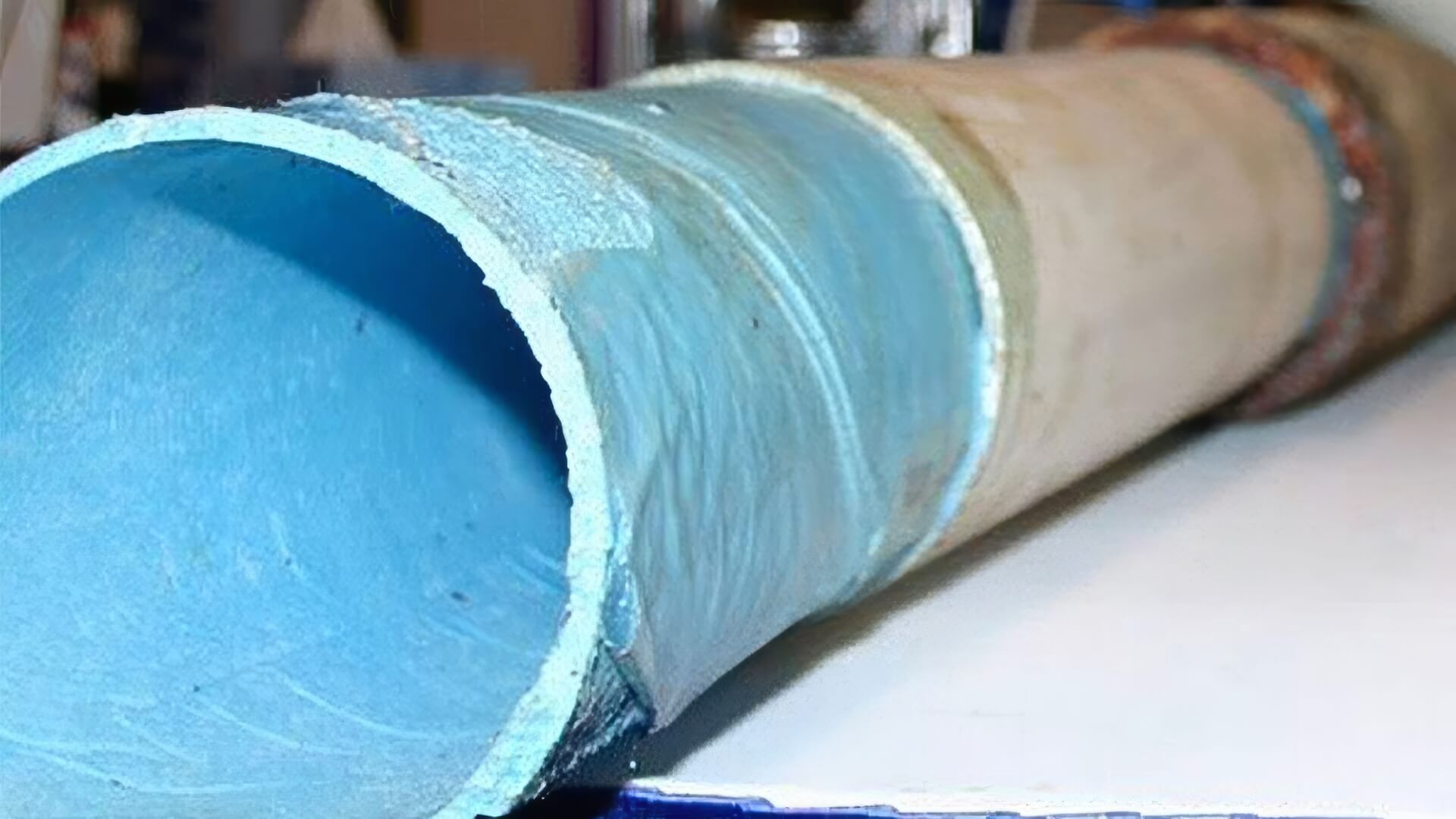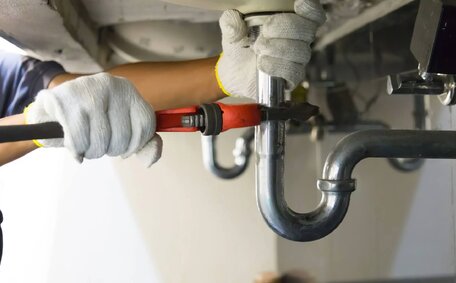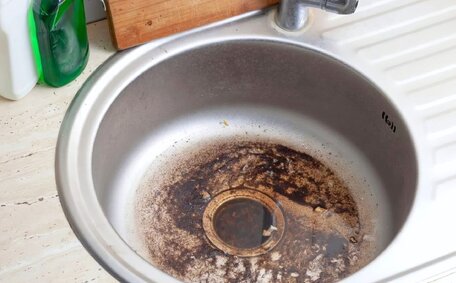Introduction to blocked drains in rental properties
Blocked drains present a significant challenge in Kareela, Sydney rental properties and are routinely managed by Sydney Water professionals. Food scraps, hair, and other debris can easily accumulate and cause clogs in pipes over time. This creates backups in sinks, showers, and toilets, leading to issues that may require the intervention of local council services.
As someone responsible clearing blocked drains, either as a rental property owner or tenant, it’s paramount to comprehend your duties and rights concerning the maintenance of plumbing. We’ll clarify the legal responsibilities of both parties under the NSW Residential Tenancies Act to help prevent and address drainage problems.
Uncertainty regarding who’s responsible for blocked drains can lead to disputes and subsequent neglect of significant issues.
Our outfit at Kareela Plumbing has over a decade’s expertise in rapidly addressing any blocked drain your home may have within the locale. We also provide advice to help landlords and tenants prevent blockages going forward.
Irrespective of whether property concerns stem from a troubled tenant with a blocked kitchen sink or a proactive landlord aiming to secure optimal drainage, our adept crew can manage the task efficiently.
Common causes of blocked drains
Tenants often contribute to blocked drains in rental properties in the following ways:
- Accumulation of hair in bathroom drains from shaving, washing, etc. Over time, large clumps of debris can lead to clogged drains.
- Pouring fats, oils, and grease down drain rather than disposing of them correctly. These substances solidify and cling to the pipe walls, with the landlord responsible ensuring they stay clear.
- Flushing non-biodegradable items like wet wipes, cotton buds, or feminine hygiene products. Though labelled “flushable,” these often get caught in bends, creating potential blockages in your home’s plumbing.
- Allowing large food scraps to go down your sinks and toilets instead of the bin. Particles accumulate and cause obstructions.
- Embedding trees or shrubs in proximity to outdoor sewerage lines without care all but ensures troubles with root intrusion. Roots can grow into and block drains.
- Failing to properly dispose of lint from washing machines, which can lead to accumulations in private wastewater pipes.
While issues like tree roots intruding into drains fall to the landlord, tenants must vigilantly reduce blockage risks as outlined in their lease agreement. This helps maintain harmony between landlords tenants and reduce disputes over repair costs and responsibilities that occur within property bounds.
Tenant responsibilities
As a tenant, you have a duty under the NSW Residential Tenancies Act to:
- You’re responsible for maintaining the drains by avoiding blockages through improper disposal of substances like fat, oil, and hair.
- Without delay, the tenant must take action by advising the landlord or property manager regarding any plumbing complications such as blocked drains or leaking taps.
- Allow access for urgent repairs and not cause unreasonable delays.
- Maintain the good condition of plumbing fixtures like sinks, shower drain, and toilets, ensuring they are clean and free of excessive grime buildup.
- Refrain from flushing anything beyond human waste and toilet paper to avoid clogs.
Tenants adhering to these responsibilities help keep the property safe, minimise blockages, and swiftly address emerging issues to prevent significant damage. We encourage maintaining open communication with your landlord’s agent and seeking professional help at the first signs of trouble.
Preventing blockages as a tenant
Embarking on a residential tenancy, there are numerous straightforward daily routines you can embrace to prevent exacerbating drain blockages:
- Gather hair after brushing and bathing—disposing of it properly as hair is often the tenant’s responsibility when it comes to drain cleanliness.
- Wipe all fats, oils and food scraps into the bin after cooking instead of washing remains down sink.
- Refrain from using the toilet or drains as waste bins by only flushing toilet paper, not tissues or other rubbish.
- Install strainers in sinks and showers to capture hair and debris, preventing them from entering the pipes.
- Vigilance on what goes down all drains is key—alert the landlord if a drain becomes blocked or shows signs of clogging.
Being mindful of the influence your daily actions may have on your drains is essential to prevent major blockages and the need for urgent repairs in the future.
What to do if a drain is blocked
Should you encounter blocked sewer drains that fall under your responsibility as a tenant, commence with this course of action:
- Evaluate if it’s a partial or full blockage based on water drainage speed.
- Strive to rectify minor blockages including blocked toilets using a plunger, providing it’s safe to do so.
- Never use harsh liquids like bleach in attempted DIY drain clearing.
- To address blocked kitchen or bathroom sink blockages, endeavour to use an environmentally friendly drain cleaner before any other necessary repairs.
- If a DIY approach fails or the drain blockage is severe, contact your landlord or property manager without delay.
- Provide as much helpful detail about the issue as possible like affected drains, persistence of blockage, etc.
- Grant urgent entry to a licensed plumber organised by the landlord for an expert inspection and resolution.
- Do not attempt to fix severe blockages on your own, leave it to the qualified professionals.
Pursuing these steps ensures a thorough resolution if the blockage was caused tenant actions, aligning with responsibilities under legislative requirements.
Landlord responsibilities
As a landlord, you shoulder numerous critical responsibilities linked to the water system, drainage, and plumbing matters within your rental property, as delineated by the NSW Residential Tenancies Act:
- Ensure that all drains, conduits, sinks, toilets, and related plumbing are in good working order at the commencement of the lease.
- Conduct all necessary repair and maintenance tasks to maintain these crucial systems until the end of the lease period.
- Arranging professional drain inspections and clearing services as soon as possible when a tenant reports a severe blockage or drainage failure.
- Assuming responsibility for repairs due to structural issues, tree root intrusion, wear and tear, breakages, and similar issues beyond a tenant’s control.
- Avoiding makeshift solutions for complex drainage issues and relying on qualified plumbers, upholding the landlord’s responsibility to seek professional resolutions.
- Providing urgent access upon request to carry out essential repairs, thereby responsible ensuring tenant access to plumbing utilities.
Upholding these landlord duties not only fortifies relations with landlords tenants but also contributes to reducing the number of disputes concerning who is accountable for drainage and plumbing repairs within rental properties.
Ensuring effective drainage systems
As a landlord, preventing drain blockages and ensuring effective drainage relies on proactive maintenance and system improvements. Here some best practises to consider:
- Here’s a pointer: Seek regular plumbing services for professional checks on your drains biannually, to evaluate if repairs might be necessitated for blockages or additional issues.
- Perform water flow tests to identify areas of poor drainage and address them before problems arise.
- Install protective mesh screens on drains vulnerable to debris build up.
- Consider renovating outdated clay or iron pipes to reduce the likelihood of fractures and disruptions.
- Clear tree branches and roots encroaching on external drainage pipes.
- Seal pipe joints exposed to soil/debris using protective sleeves or compound.
- Upgrade ageing or damaged sections of the drainage system that are prone to failure.
At Kareela Plumbing, we offer comprehensive drainage checks and maintenance services tailored to rental properties. Investing in preventative care reduces major blockages and the need for costly emergency plumbing down the track.
Responding to tenant requests
Landlords should address tenant concerns regarding plumbing issues promptly and constructively. Any disregard towards drainage issues profoundly affects a renter’s home comfort, hence non-action can lead to serious repercussions involving local utility entities.
Under the NSW Residential Tenancies Act, if pressing problems like a blocked sewer arise, landlords must ensure that remedial action is taken within 14 days subsequent to a tenant’s notification. Plumbing issues that pose health risks like sewerage back-ups or those disrupting essential services like kitchen drainage would be considered urgent.
The apt procedure in responding to a notification concerning sewer drains or different aspects of drainage malfunction entails:
- Immediately reach out to the tenant to evaluate the reported hot water system or other plumbing concern.
- Classify the request based on severity, such as regular maintenance or urgent repairs for damaged pipes.
- Engage a certified plumber to inspect and provide repair quotes.
- Authorise the tradesman to carry out the clearing or repair job.
- Follow up with the tenant to ensure the issue was adequately resolved.
Adhering to this system allows landlords in Kareela, Sydney to remain compliant with legislation and ensures tenants have faith that concerns over property condition will be addressed effectively.
Liability for blockages
Determining responsibility for a blocked drain depends on assessing its likely origins and whether it stems from tenant misuse or factors beyond their control. Under the NSW Residential Tenancies Act, it’s the tenants’ responsibility to fix blocked drains caused by their actions, following practices that prevent such occurrences.
On the flip side, property owners or the landlord likely responsible are accountable for the plumbing problem if the blockage originates from structural defects, invasive roots in exterior pipes, or the deterioration associated with ageing drain networks. They’re similarly responsible fixing and covering costs for clearing any pre-existing blockages that were present during tenancy commencement.
If the specific cause can be difficult to diagnose, accountability often rests with the party responsible for covering blocked drain expenses in the property’s water system. Tenancy agreements may stipulate additional clauses around drain blockages, superseding standard regulations.
Ultimately, deciphering who is responsible blocked drains hinges on identifying the causative factors. Tenants should call upon diligence to elude neglect, whilst landlords are obliged to supply workable drainage infrastructure. When comes to uncertainty, contacting qualified plumbers to inspect and identify causes can clarify the appropriate party for addressing blocked drains under local rental laws.
Determining the cause
When a dispute occurs over a blocked drain, either tenant landlord faces the task of getting to the root cause—crucial for assigning liability and ensuring proper long-term solutions. As professional plumbers, our team at Kareela Plumbing employs best-practice diagnostics to accurately determine the cause of a blockage.
Our team deploys high-resolution cameras to verify circumstances visually and pinpoint obstructions within sewer mains accurately. We can also probe into usage patterns and recent changes to ensure the problem is fixed efficiently. For severe blockages requiring excavation, our experts inspect the exposed drainage lines to get to problem areas and assess whether the responsible blockage was due to invasive tree roots, pipe damage, and so on.
By combining forensic drain assessments with external factors analysis, we can advise both tenants and landlords on the likely reasons a blockage arose. We provide documentary evidence to support any pre-existing structural deficiencies versus recent occupant negligence.
There’s an array of actions what can do, such as procuring professional drain assessments from area specialists like us, offering authoritative perspectives on potential causes of drain blockages to dissolve any contention. We take full responsibility for accurately determining origins before executing appropriate solutions.
Tenant versus landlord costs
When a blockage occurs, it can get attributed to tenant misuse and they might absorb the expenses if it was unequivocally due to unsuitable practices such as flushing wipes or permitting fat accumulations despite landlord cautions. Under the NSW Residential Tenancies Act, A tenant liable can arise for call out and repair fees if urgent access for tradespeople is unreasonably denied.
Conversely, landlords are liable for fixing drains and facilitating repairs for issues stemming from structural faults, tree roots, fair wear and tear, or pre-existing clogs prior to tenancy. They must also fund major pipe upgrades to address recurrent blockages related to ageing systems.
For blockages of unclear genesis, culpability oftentimes settles upon the entity that finances the drains your establishment’s water utilizes. Rental agreements may stipulate specific drain blockage provisions on a case by case basis. Getting professional drain assessments can help assign accountability where unsure.
Resolving disputes
In the event of a blocked drain, if tenants and landlords dispute over responsibility and costs, they should first seek open communication and mediation before resorting to legal action.
Both parties should present their views and evidence regarding the likely cause, and seek impartial assessments from qualified plumbers when necessary. Reaching a mutual understanding typically involves negotiations conducted in good faith.
If your landlord responsible efforts prove fruitless and no agreement can be reached, small claims tribunals through NSW Fair Trading provide mediation services for tenancy disputes. As a last resort, official adjudication may deliver a binding judgement if the facts around a drain blockage cannot decide liability.
Transparent conversations and expert drain assessments often lead to reasonable compromises and resolutions. The tenant-landlord relationship need not suffer from common plumbing issues so long as both sides remain open and truthful.
Getting help from authorities
As a tenant, if attempts to resolve a blocked drain dispute fail, you can contact NSW Fair Trading or your local Tenants Advice and Advocacy Service for guidance. They can help explain the legislation and your rights regarding plumbing repairs.
Fair Trading provides free tenancy advisory services, complaint investigations, and access to mediation if needed. Tenants NSW is another excellent resource that enlightens renters about their obligations, rights, and offers assistance with disputes through advocacy services.
Receiving impartial advice from government entities or tenancy advocates can support you with valuable insights for negotiations, regardless of whether the property issue is minor or complex. Or they may directly contact them on your behalf. Their expertise allows tenants facing stubborn drain blockage disagreements to find equitable solutions.
Negotiation and mediation
If a drainage issue arises and liability disputes between tenants and landlords persist, pursuing respectful negotiation and mediation is crucial before escalating to legal actions. All involved should freely exchange viewpoints, submit any corroborating information regarding causative factors in blockages, and depend on impartial expert evaluations from licensed plumbers for what need to be fixed.
Coming to a mutual understanding often requires good faith efforts. Should reasonable attempts fail, services like NSW Fair Trading provide free mediation to find agreeable solutions. If facts alone can’t resolve disputes, tribunals may provide a final adjudication as a last resort. However, transparent communication paired with expert opinions on causes typically enables sensible compromise. If facts alone can’t resolve disputes, tribunals may provide a final adjudication as a last resort.






